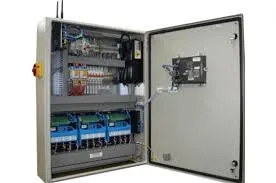The Role of Electrical Insulation Tape in Modern Industry
Electrical insulation tape is a crucial component in various electrical applications, providing safety and durability in electrical systems. Manufacturers around the world produce a wide range of tapes designed to meet diverse needs, ranging from simple home repairs to complex industrial applications. This article explores the importance of electrical insulation tape, the manufacturing process, and the leading manufacturers in the industry.
Importance of Electrical Insulation Tape
Electrical insulation tape is primarily used to insulate electrical wires and other materials that conduct electricity. It serves several key functions
1. Safety The primary purpose of insulation tape is to prevent electrical shocks and short circuits. By covering exposed wires and connections, it reduces the risk of accidental contact with live electricity.
2. Protection Insulation tape protects wires from environmental factors such as moisture, dust, and physical abrasion. This is especially essential in industrial settings where wires are often exposed to harsh conditions.
3. Color Coding Electrical tape comes in various colors, allowing for easy identification of wires. This color coding is vital during installation and repairs, helping electricians quickly discern between different circuits.
4. Splicing Insulation tape is often used for splicing wires together. It provides a secure, insulated connection that can withstand various environmental stresses without breaking down.
5. Electrical Continuity In addition to insulating, certain types of insulation tape, such as those made from polyvinyl chloride (PVC), can also provide excellent electrical continuity, making them preferable for specific applications.
The Manufacturing Process
The production of electrical insulation tape involves several steps, ensuring that the final product meets stringent safety and performance standards. Key stages in the manufacturing process include
1. Material Selection High-quality raw materials are essential for producing effective insulation tapes. Common materials include PVC, rubber, and cloth, each chosen for its unique properties, such as flexibility, durability, and resistance to temperature and chemicals.
2. Coating The chosen substrate is coated with a layer of adhesive. The adhesive must have a strong initial tack while also being stable over time to ensure the tape adheres well under various conditions.
electrical insulation tape manufacturers

3. Die Cutting Once the tape has been coated, it is rolled and cut to size using precision die-cutting machines. This allows for the production of tapes in various widths and lengths, catering to different requirements.
4. Quality Control This stage involves rigorous testing to ensure that the tape meets industry standards. Testing may include checking for electrical resistance, tensile strength, adhesion, and environmental resistance.
5. Packaging Finally, the finished tapes are packaged for distribution. Packaging must protect the tape from damage and should ideally provide information about the product’s specifications and intended use.
Leading Manufacturers
Several manufacturers are recognized as leaders in the electrical insulation tape market. Each has established a reputation for quality and innovation
1. 3M A prominent player in various adhesive and insulation products, 3M offers an extensive range of electrical tapes known for their reliability and performance. Their products are designed for various industries, including automotive, aerospace, and general electrical applications.
2. Nitto Denko This Japanese company is well-known for its advanced tape products. Nitto focuses on creating solutions that offer high temperature and voltage resistance.
3. Avery Dennison Known for their labeling and packaging solutions, Avery Dennison also manufactures electrical insulation tapes. Their products are characterized by innovative designs and strong adhesive properties.
4. tesa SE A global leader in adhesive tape manufacturing, tesa SE produces a variety of insulation tapes for electrical applications, known for their strong performance and durability.
5. Scotch® Another brand under the 3M umbrella, Scotch® tapes are widely recognized in both consumer and industrial markets for their wide range of insulation and specialty tapes.
Conclusion
Electrical insulation tape plays an indispensable role in ensuring the safety and reliability of electrical systems across various sectors. With innovative manufacturers continually improving their products, the future of electrical insulation tape looks promising. As industries evolve and new technologies emerge, the demand for high-quality insulation tape will continue to grow, solidifying its place as a vital component in electrical applications.
-
XIANGFAN Rubber Tape-Ultimate Solutions for All Your Insulation NeedsNewsJun.24,2025
-
XIANGFAN Rubber Tape-Protection for Industrial and Residential ApplicationsNewsJun.24,2025
-
XIANGFAN Rubber Tape: Superior Safety and Sealing for Demanding EnvironmentsNewsJun.24,2025
-
XIANGFAN Rubber Tape: Reliable Solutions for Every Electrical ChallengeNewsJun.24,2025
-
XIANGFAN Electrical & Industrial Tape: Powering Reliability Across IndustriesNewsJun.24,2025
-
XIANGFAN Electrical & Industrial Tape: Excellence in Every ApplicationNewsJun.24,2025
